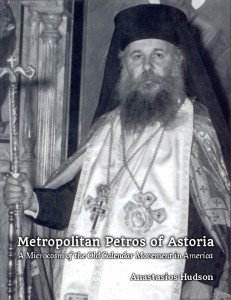Doctrines and Spirituality
Have you ever been unsure about some aspect of who Jesus is? Or maybe you’ve heard someone on television preach something one way that sounds different from what you have heard before? You may have even seen a film where the Church is made out to be the bad guy, covering up the truth, such as in The DaVinci Code.
Divergent views about God and division from the Church are unfortunately nothing new. St. Paul warns his followers at least two times in his letters: “Be not carried about with divers and strange doctrines” (Hebrews 13:9) and “Now the Spirit speaketh expressly, that in the latter times some shall depart from the faith, giving heed to seducing spirits, and doctrines of devils” (I Timothy 4:1). Keeping that in mind, we should not be too concerned when we hear these challenges to our faith, because it is something that even the earliest Christians had to deal with. Sometimes though we wonder why holding a correct doctrine or belief is important to our spiritual life in the first place.
The goal of our faith and spirituality is to have a relationship with God. Specifically, God is not an invisible force, but is a Trinity of persons: Father, Son, and Holy Spirit. The Son—Jesus Christ—became incarnate of the Virgin Mary and revealed what it means to be God, by dying on the Cross. The love in the famous passage “for God so loved the World” refers not to an emotional feeling, but rather a state of self-emptying that culminated in Christ’s self-sacrifice of death on a Cross so that death and sin would lose their power and true life with God would be possible.
Because our relationship with God is defined in terms of a relationship with a person, it’s important to know accurately who this person is, or else the relationship will suffer. It’s like if you have an elderly aunt who cannot use the computer or phone, and you only know the details of her life through her son, who gives you frequent updates. If for some reason he reported back mistaken details, or was deceptive, you would not have an accurate picture of your aunt and her state of being. In a similar way, we have the written and oral record of Christ and his teachings, represented by the New Testament writings and the testimony of the bishops who succeeded the Apostles. Those who change the commonly-held and ancient teachings of the Church in effect obscure the Christ who is proclaimed. Such a distortion can have drastic consequences on our spiritual life, by leading us away from the path of repentance and spiritual transformation established by Christ. TV preachers proclaiming that following God will lead to financial wealth are but one example.
The surest way to avoid this pitfall is to follow the lead of those who succeeded Christ, his Apostles, and their successors, the bishops. The bishops in the Orthodox Church today can be traced back to the Apostles, and the faith they proclaimed is publicly on record. This faith is a living faith that has been transmitted from generation to generation. The Body of Christ, the Church, is not just a horizontal collection of all who believe in Christ and have been baptized in His name, but also is vertical, extending back and forward in time to all generations. This surety frees us up from following the whims of the times, in order to focus on the tried and true methods of spiritual growth practiced by Orthodox peoples of all times.
We invite you to worship with us and “plug in” to this spiritual tradition yourself!
Yours in Christ,
Fr. Anastasios


